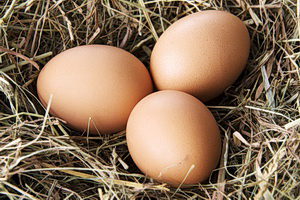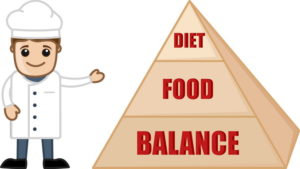 Disrupting your regular diet and going overboard with overeating is pretty easy. However, its implications can be far-reaching. For instance, it can waste all the progress you made through exercise. Moreover, it can make you more vulnerable to many unwanted health conditions.
Disrupting your regular diet and going overboard with overeating is pretty easy. However, its implications can be far-reaching. For instance, it can waste all the progress you made through exercise. Moreover, it can make you more vulnerable to many unwanted health conditions.
In Part 1, we discussed different steps you can take to stop yourself from overeating. Here, we will extend our discussion to more measures that one can help in cutting the excessive part of your dietary intake.
Keep Stress Out of Your Eating Routine
Chronic stress leads to several unwanted health conditions and behaviors and one of them is overeating. It has been scientifically proven that cortisol–the stress hormone–also catalyzes our appetite. So, a person suffering from chronic stress will also experience frequent spurts of overeating. Relieving stress, in general, requires many different measures. You can increase physical activity, practice yoga, and meditation, and add more outdoor expeditions to your daily routine to suppress chronic stress.
Dealing with Emotional Eating
Stress and emotional eating/overeating can be dealt by employing several measures. First, accept that you are eating under the influence of certain psychological distress. This will help you to address the issue directly. Stress eating is often highlighted with hasty wolfing down food. The affected person is eating just for the sake of it. So, try to enjoy and feel every bit of what you are eating. This might take you out from the spell of stress eating.
Also, try to identify the triggers of your stress eating. Some people overeat when they feel lonely. Some overeat when they are angry and agitated. Whenever you experience these triggers, try to neutralize them with non-dietary measures. You can talk to friends or go for rounds on a punching bag to sublimate your anger and stress.
Refrain from Distracted Eating
All of us are guilty of distracted eating behavior. We have eaten on our workstations and have had eaten meals while enjoying our favorite TV shows. Some of us even scroll through our social media feeds during meals. Eating while performing other chores is considered multitasking and required in today’s hectic schedules.
But it has also been noticed and formally studied that distracted eating mostly leads to overeating. If you can avoid and afford it, refrain from distracted eating particularly if you are already suffering from weight issues. Try to focus on your meal and you will eventually reduce your calorie intake without putting in any concentrated effort.
Eat from Servings Instead of Containers and Packets
Eating directly from packaging is yet another seemingly harmless habit that can actually develop a strong overheating problem. For instance, if you are eating directly from the ice cream bowl, bag of chips or any other container, then you will most certainly eat more than what you have planned.
Make a serving size for yourself depending on the items you are going to eat. By making portions, you can cut down the size of your calorie intake that will eventually help you in shedding the extra pounds as well.
Don’t Complement Your Food with Soda
Many people have the habit of sipping sodas with their regular meals. The decades of aggressive marketing from cola giants (you know their names) have played an integral part in the development of this habit. Apart from giving a sharp, satisfying fizz, soda drinks also add lots of sugar to our systems.
Moreover, a study has found out that people who eat their meals with sugary carbonated drinks eat 8% more than those who take water with their meals. If you have a well-developed habit of eating your daily meals with soda beverages, then we don’t recommend you to cut off your entire consumption all of a sudden as this can also lead to a harmful relapse.
Replace your sweet sodas with seltzers. The latter is simply carbonated water with no artificial flavors and sweeteners. Later on, you can move to water to make your meals completely free of artificial drinks.
Increase Healthy Fat Content in Your Diet
Fats are generally considered bad for health and responsible for obesity. However, a significant body of research has debunked this alleged characteristic of fats. Not all fats are bad for health. In fact, their smart consumption can also help in reducing weight and getting rid of the habit of overeating.
It has been studied that people who regularly eat high-fat and low-carb foods experience fewer cravings, which protects them from overeating. In the long run, this strategy can turn out more effective in shedding weight than any episodic diet plan.
However, make sure you don’t consume fatty foods comprised of bad fats. Nutritionists across the board consider Trans fats and unsaturated fats bad variants of this macronutrient. To keep bad fats away from your diet, avoid hydrogenated oils, margarine, and meat fat. You can consume more healthy fats by adding nuts, avocados, butternut and olive oil to your daily diet.
Feast on Proteins
Increased intake of protein is also considered good to deal with the instances of overeating. It has been studied that people who eat protein-rich breakfasts feel more satisfied and satiated throughout the day. It has also been studied that protein-rich foods lower the level of the hormone ghrelin in the blood, which is responsible for revving up a hunger. Greek Yogurt is a dairy product that has become quite popular among diet-conscious people lately. It is rich in proteins and can be added as a dessert to your daily diet.
Overcoming the habit of overeating is possible by making little changes in your daily dietary regimen, as evident by the detailed discussion in these two articles. Nevertheless, you might find it hard to adopt these changes especially if you have a well-developed habit of overeating.
If you can’t get out of the habit of overeating after exercising self-help techniques, then it will be suitable to consult professional nutritionists, physicians, and even psychological experts. These professionals will help you in dealing with this detrimental habit that eventually leads to obesity.











 There is no one effective formula that can help in reducing weight quickly. Individuals have to take a number of measures to avoid accumulation of excess body fat. For many, a healthy diet plan coupled with aerobic exercise is the most effective way to combat obesity.
There is no one effective formula that can help in reducing weight quickly. Individuals have to take a number of measures to avoid accumulation of excess body fat. For many, a healthy diet plan coupled with aerobic exercise is the most effective way to combat obesity.